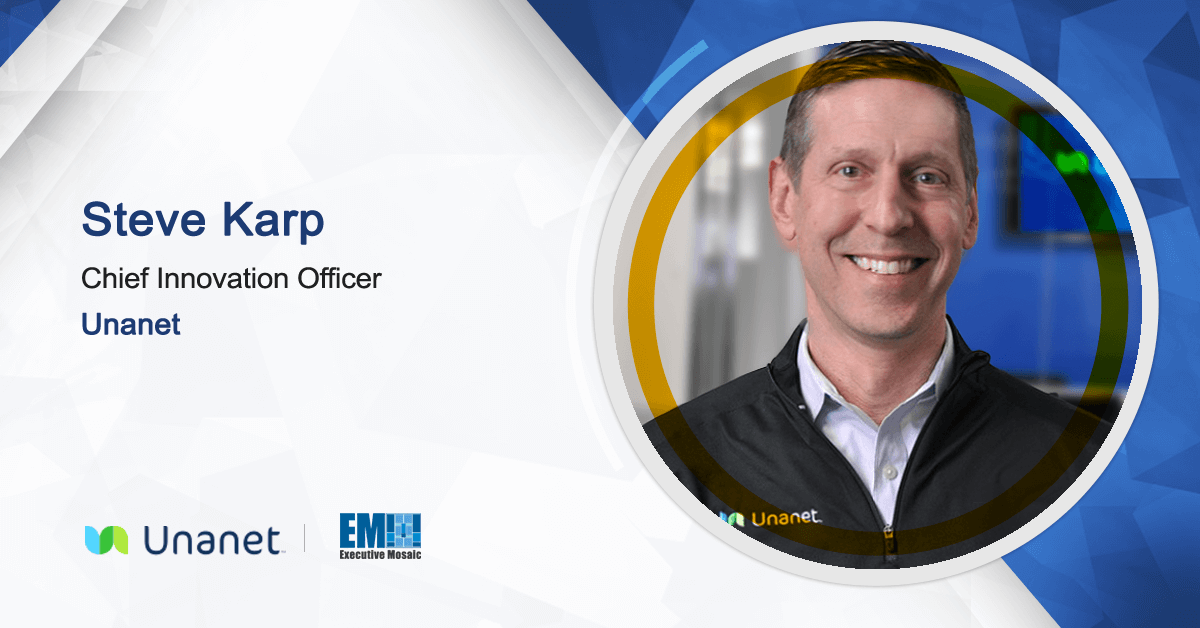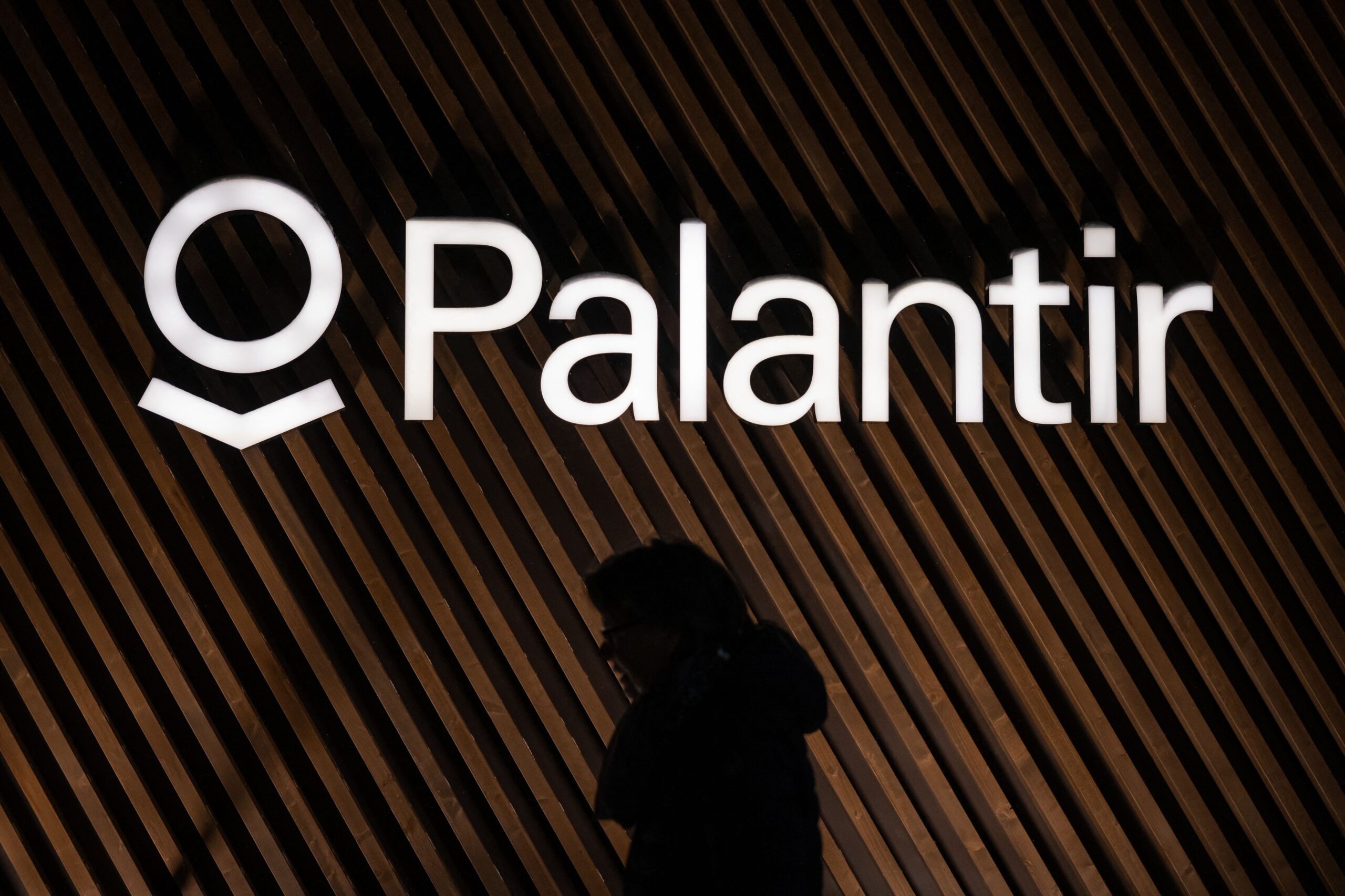When Steve Karp stepped into the role of chief innovation officer for government contractor-focused software company Unanet, he did so knowing that much of the work would continue to push the envelope to give GovCons more of the smart tools that they need to deliver. superior project results and, ultimately, grow their businesses in today’s opportunity-rich but highly competitive business environment.
Drawing on more than three decades of experience in the Software-as-a-Service, financial technology and payments industries, Karp sat down with us to share his perspective on the amazing things artificial intelligence can do for government contractors, the fundamentals that GovCon firms must have in place to successfully integrate AI into their businesses and the exciting new opportunities for firms to use AI in the context of their enterprise resource planning and customer relationship management platforms.
What are some of the most daunting barriers government contractors face as they begin — or continue — their AI implementation journeys?
A few challenges come to mind. The first has to do with mindset. Before you start implementing AI tools, it’s essential to highlight the importance of your team’s human expertise. AI is designed to augment and complement their efforts – and their expertise is at the core of this integration.
Once you have accepted it the value of human insight first of all, you can aapproach AI like any new technology: with an intense focus on identifying and understanding unmet customer needs that the technology may be particularly well-suited to solve. However ambitious your ultimate plans for AI, you first want to gain confidence and comfort with the technology. So start the journey with a proof-of-concept project or two to evaluate how AI performs in relatively narrow use cases. Then, you can determine whether and how to replicate and scale AI in other parts of your business.
Finally, you need to address data quality within your firm. AI models depend on reliable, relevant, complete and fresh data to learn and provide valuable and actionable insight. And the insights these models produce are only as good as the data that feeds them. So among the first steps for a firm on its AI journey should be to honestly assess how strong its data is—and its stewardship of that data—and then take steps to support areas that need them.
What kinds of tools and technologies can organizations use and what steps can they take to better handle and be better stewards of their data so that they are well-positioned to benefit from AI ?
Generative AI tools like ChatGPT are fun to use in our daily lives, but for government contractors, AI needs to prove its worth in a real business context. This is really the end game.
Getting there means providing the AI models you’re using with rich, deep, and domain-relevant data. More specifically, this means treating data as the valuable asset it is by making sure you have the tools to collect it, standardize it wherever possible and store it. in an accessible but secure repository that serves the entire business.
Firms need a single integrated digital environment rather than a system of isolated systems and a reliance on many repetitive and error-prone manual processes. Having well-established, automation-enabled, and universally followed business processes for managing data across the business also helps.
These fundamentals are not only critical prerequisites for AI, they are imperative to running a high-performing GovCon business today.
Where do you think AI will go next, especially as it is used within a government contracting business? What do you see on the horizon?
The possibilities are truly endless. Looking at our product roadmap here at Unanet, the capabilities and use cases that we already have in the pipeline or are envisioning right now are really exciting. And as fast as AI technology is advancing and the models behind it are learning, it seems like we’re seeing ideas for new business applications applicable to AI emerge almost every day.
In terms of what’s on the horizon or already here, how about AI capabilities on the finance and accounting side that automate bill management and payment? I’m excited about the next generation of Accounts Receivable, or AR, and Accounts Payable, or AP, automation tools — they improve the customer experience, take manual work off people’s plates, and help firms get paid and make payments in more efficiently and safely and accurately. On the business development side, how do you use genAI to research a potential customer and automatically create a company record in your CRM database based on its findings?
We’re not far off from GovCons being able to use AI to help identify business opportunities they should pursue and predict the likelihood of winning specific pursuits. The same goes for AI tools that predict a firm’s supply chain and labor issues. I really believe we are just scratching the surface in terms of AI use cases that make business much easier for GovCon firms.
Based on what you observed with the Unanet government contractor customers, what are some of the keys to successfully and sustainably integrating AI into a GovCon business?
We just wrapped up our annual Champions event for customers, and as you’d expect, there was a lot of discussion about AI. These customer conversations, along with our experience here at Unanet integrating AI into our business processes, have been quite enlightening in terms of best practices to set the stage for a successful AI journey.
As I mentioned earlier, having the right mindset and handling your data well is critical, as is starting small, with use cases that are technically feasible, design a well-defined business need or problem, align with your business goals and project to add enough value to the business to justify the investment. Once you identify use cases, do your due diligence to evaluate the tools available for those use cases, as well as the provider of those tools. You want to be satisfied not only with the quality and scalability of the solution, but also with the quality of support you will receive from the AI solution provider. Also, as part of the process, you’ll want to establish AI ethics and governance policies and processes.
Once you’ve checked these boxes, start piloting with a proof of concept, setting goals and establishing KPIs for how you’ll measure success. An area of focus should be getting your team excited, engaged and active, explaining the rationale behind the program, providing training and encouraging them to experiment with the tool. Gather feedback about the user experience, measure the tool’s effectiveness against your KPIs and goals, and work with the AI tool provider to refine the model as needed. And be alert to opportunities to scale and apply the tool elsewhere in the business. These pilot projects can reveal truly compelling AI use cases that you could never have imagined.
For more information on how Unanet is integrating AI into their GovCon solutions, visit https://unanet.com/exploring-ai/ai-in-govcon.
#Unanets #CIO #focus #arming #GovCons #solutions #GovCon #Wire
Image Source : www.govconwire.com


